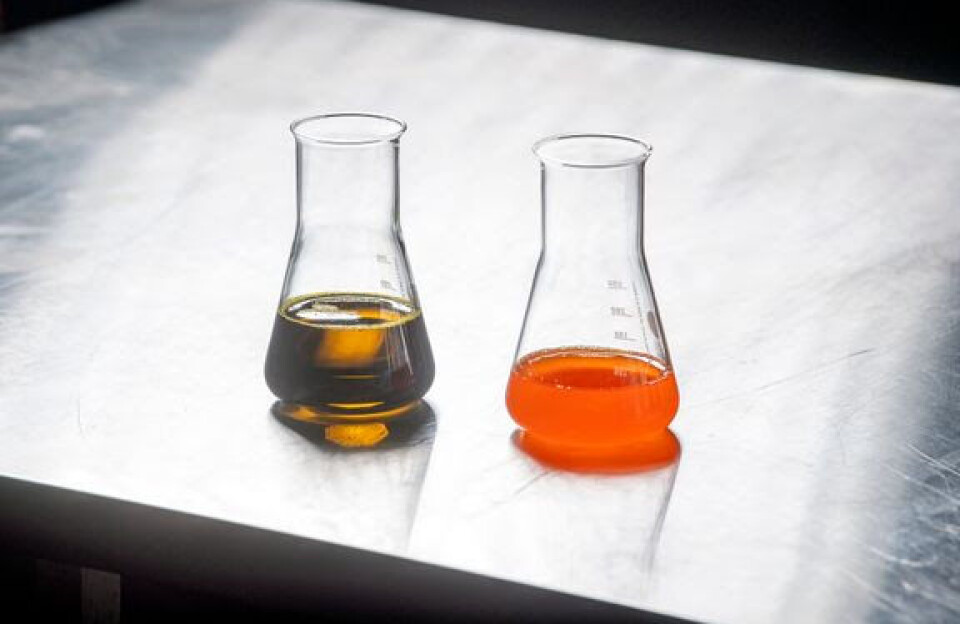
Salmon farmers likely to adopt GM omega-3 oil, says scientist
Nofima researcher believes product will find room in Norwegian market
An omega-3 oil derived from a genetically modified plant is likely to “force its way” into use by the Norwegian salmon industry because of the benefits it provides, a scientist who has researched the product believes.
Bente Ruyter, a senior scientist at Norwegian food research institute Nofima, has conducted research for many years to find out how farmed salmon can get a higher content of omega-3 in the body. One option is oil from modified canola, a type of rapeseed plant.
In June last year, the Norwegian Food Safety Authority approved the use of Aquaterra, a GM canola oil made by the company Nuseed, for use in salmon feed.
Fewer dark spots
“Research has been carried out over many years to see if this oil can be used in fish feed,” said Ruyter in a press release. She added that when the oil is used in fish feed, scientists have found that the fish perform better, get more omega-3, fewer dark spots, and better red colour in the fillet.
“Global production of fish oil is stable: catching more wild fish is not sustainable. Therefore, fish oil is becoming less and less available for the aquaculture industry every year as the industry grows.”
In 2,000, 30% of salmon feed consisted of fish oil. In 2020, this was down to 10% in Norway.

“Our research shows that it is not healthy for salmon to have such low levels of omega-3 in the feed. They become less robust, and their flesh has poorer colour. The industry has therefore started to increase the level of omega-3 fatty acids in the feed again,” explained the scientist.
“The production of genetically modified canola has great potential for growth, and will probably become an important new source of omega-3 in the fish feed.”
Feeding GM oil makes the fish healthier than if they were only fed standard plant oil. Salmon also need a certain level of omega-3 in their feed in order for their muscles to get a delicate pink colour. Nofima’s research also shows that the omega-3-rich canola oil reduced the prevalence and severity of dark melanin spots in salmon fillets.
DHA
Nofima has previously shown that the long-chain fatty acid DHA, contained in omega-3, has this effect.
Scientists have had to carry out trials in fresh water, in closed tanks and finally in net-pens at sea to document the properties of the GM canola oil in salmon.
“It is now approved for use. Whether the industry uses it is another matter. But I think it will force its way in,” said Ruyter.
The research has been financed by the Norwegians Seafood Research Fund (FHF) and was carried out in collaboration with Institute of Marine Research, Nuseed and the world’s biggest Atlantic salmon farmer, Mowi.
Aquaterra is already available to salmon farmers in North America, Chile, and Australia, but Norway is the first European country to authorise its use.






















































